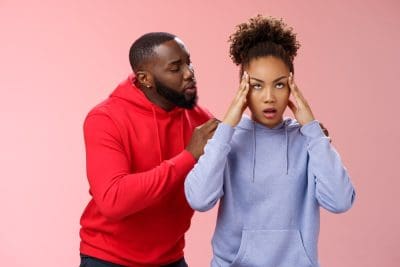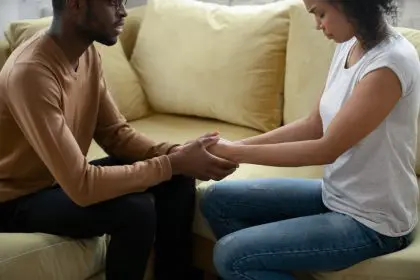Marriage is a cornerstone in many Black communities, a bond that weaves together love, resilience, and shared history. Yet, in 2025, relationships among Black couples face pressures that can erode even the strongest foundations. From the daily grind of work to the weight of societal expectations, modern life throws curveballs that test commitment. After digging into the patterns shaping Black marriages today, three habits stand out as especially damaging. These aren’t just minor missteps—they’re toxic traps that can unravel years of partnership if left unchecked. Here’s a close look at these marriage killers, why they hit hard in Black relationships, and how couples can turn things around for a healthier, happier future.
Communication breakdowns fueling distance
The first toxic habit tearing into Black marriages is the slow creep of communication breakdowns. Life in 2025 moves fast—between juggling jobs, raising kids, and navigating financial pressures, couples often let meaningful conversations slip away. What starts as missed check-ins turns into silence, leaving partners feeling unheard or disconnected. In Black households, where family and community ties run deep, this drift can feel especially jarring. The lack of open dialogue creates a void where assumptions and resentment grow, replacing the teamwork that once held the marriage together.
This habit hits hard because it’s subtle. A busy week becomes a month of short, transactional exchanges—bills, schedules, kids’ needs—with no room for emotional connection. For Black couples, external stressors like workplace bias or extended family demands can make it even tougher to carve out time to talk. Over time, the silence builds walls, and partners stop sharing dreams, fears, or even small wins. To break this cycle, setting aside intentional moments—think a quiet dinner or a late-night chat—can rebuild that bridge. It’s about making space to listen, not just to speak, and rediscovering the rhythm that keeps love alive.
2. Money stress poisoning trust
Coming in at number two is the toxic habit of letting money stress poison trust. Finances have always been a tricky spot in marriages, but for Black couples in 2025, the stakes feel higher. With rising costs in cities like Atlanta, Chicago, and beyond, plus the lingering effects of wage gaps and generational wealth disparities, money worries can dominate daily life. When budgets tighten, tension creeps in—arguments over spending, savings, or debt can escalate fast, turning partners into adversaries instead of allies.
This habit does damage by shifting focus from unity to blame. One partner might feel judged for not earning enough, while the other stresses over every dollar spent. In Black marriages, where pride in providing and building a legacy often runs strong, these clashes can cut deep. The mistrust festers when couples avoid the root issue—whether it’s differing priorities or unspoken fears about the future. Facing it head-on takes guts, but it works. Sitting down to map out a shared plan, even if it’s just a small step like cutting one expense, can ease the strain. Transparency about money builds trust back, brick by brick, and keeps love from drowning in dollars and cents.
3. Neglecting intimacy and personal time
The third toxic habit wrecking Black marriages is neglecting intimacy and personal time. In the hustle of 2025, with remote work blurring lines and social media demanding attention, couples often put their relationship on the back burner. Physical closeness fades when exhaustion takes over, and emotional intimacy slips when partners stop making time for each other. For Black couples, who often juggle community roles, parenting, and career ambitions, this neglect can feel like a betrayal of the bond they fought to build.
This habit stings because it erodes the spark that defines a marriage. Date nights get replaced by Netflix binges, and meaningful touch—like a hug that lingers—becomes rare. In Black relationships, where love is often celebrated through shared joy and resilience, losing that connection leaves a void. The impact shows in small ways first—less laughter, fewer inside jokes—then grows into a chasm. Reclaiming intimacy doesn’t need grand gestures. A walk together, a playlist of old favorites, or even a no-phones rule for an hour can reignite the flame. It’s about prioritizing the “us” over the chaos, reminding each other why they chose this life together.
Why these habits hit Black marriages harder
Black marriages in 2025 don’t exist in a vacuum—they’re shaped by forces that amplify these toxic habits. Systemic challenges like economic inequality and healthcare disparities pile on stress that spills into relationships. Cultural strengths, like tight-knit families and faith, can sometimes backfire when couples feel pressure to keep up appearances instead of addressing problems. Add in the digital age’s constant pull—scrolling instead of connecting—and it’s a perfect storm. These habits aren’t unique to Black couples, but the context makes them tougher to shake. The weight of history and the push for progress mean every crack in a marriage can feel like a personal and collective loss.
Yet, that same context offers hope. Black love has always thrived on resilience, and these habits don’t have to be the end. Recognizing them is the first step—seeing how silence, money fights, and neglect sneak in and take root. From there, it’s about action, not perfection. Couples who tackle these traps head-on often find their bond grows stronger, forged anew through the work of healing.
Turning the tide for stronger unions
Kicking these toxic habits isn’t easy, but it’s worth it. For communication, it starts with consistency—maybe a weekly catch-up where both partners share one high and one low from their day. It’s simple, but it keeps the lines open. On money, couples can lean into teamwork—setting a small goal, like saving for a trip, shifts the vibe from conflict to collaboration. And for intimacy, carving out time is key—whether it’s a quick coffee run or a night with no distractions, it’s about showing up for each other.
Black marriages in 2025 have the chance to shine brighter than ever, but it takes breaking free from these silent killers. The reward is a partnership that doesn’t just survive—it thrives. Think of it as a reclaiming of love, a chance to build something lasting in a world that’s always shifting. By facing these habits, couples can write a new chapter—one where trust, closeness, and understanding rule the day.


















